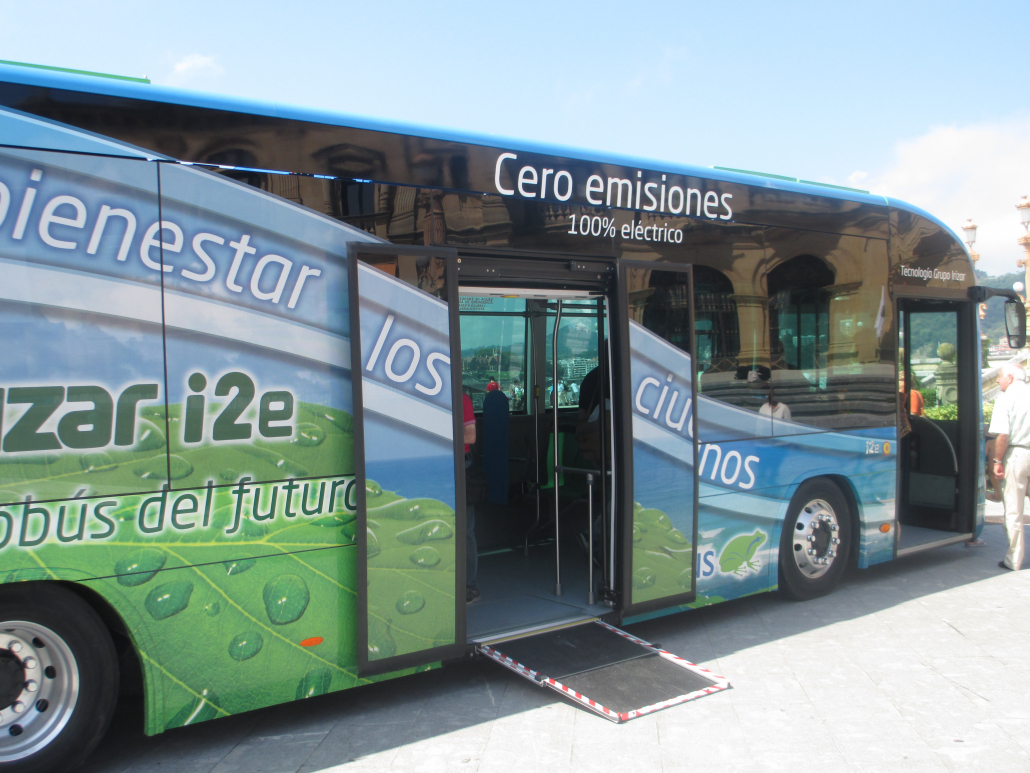SMART RAMP
Reduce the risk of non-deployment of bus access ramps for disabled people thanks to Artificial Intelligence
| Type | Open Call No. | Funds granted |
| Twin AE | OC 3 | €99,035.50 |
Challenge

Ensuring the highest standards of service is a primary objective for Donostiabus (DBUS), the bus operator of the city of Donostia (San Sebastian) in Spain. The second item of its “Service Charter” outlining DBUS commitment to its passengers is “Accessibility”: ensuring normal access to its buses to people with reduced mobility. All the buses of DBUS fleet are equipped with an automated ramp being automatically deployed (from the bus to the sidewalk) when requested by a person in a wheelchair. The ramp enables the disabled person to board on the bus by themselves. Unfortunately, for multiple reasons, this deployment can encounter technical issues, preventing the ramp from coming into the sidewalk, therefore preventing the person in the wheelchair to embark on the bus.
Solutions provided
DBUS and HUPI propose to develop a Cyber Physical Systems (CPS) device embedded/connected to the bus, called “Smart Ramp”, and run “live experiments”, by deploying this new device in 10 buses. Analyzing the data related to the behavior of each ramp, measured and provided continuously by the custom-made IOT device, “Smart Ramp” will be able to identify in real time, via Artificial Intelligence models, the early signals, representative of a risk of “short-term” failure in the deployment of the ramp. The prediction of this “failure risk”, continuously updated through Smart Ramp data collection, will enable DBUS to perform selected and targeted maintenance operations on the bus before the failures occur, and therefore significantly improve the service towards the disabled people.
Consortium strength
HUPI acts as technology provider by developing the CPS device Smart Ramp” based on DBUS requests and specifications (accessibility ramp models deployed in DBUS fleet), continuously interacting with DBUS technical team.
DBUS, the end-user, will make available 10 buses from his fleet to be equipped with the Smart Ramp device, allowing HUPI to conduct full-scale test campaigns and acquiring the necessary skills/competencies to further deploy the Smart Ramp device in all their buses and adapt their maintenance procedure.
Business development
The “Smart Ramp” system would have a significant impact on several stakeholders:
HUPI is already commercializing the “Virtual Assistant for Mobility Transition” with 3 modules as of now very advanced. The “Smart Ramp” system would be an additional feature to this product suite, both from a technological, market, positioning and distribution point of view.
The European Bus operator market includes around 300 000 buses (2017) and the mobility access is a key issue regarding service quality and competitiveness. By forestalling failure thanks to preventive maintenance, Smart Ramp system will participate to significantly improve the quality and thus provide a real competitive advantage to win contracts. Moreover, by reducing bus immobilization for repair, the “Smart Ramp” system will generate an economic saving estimated of 100M€+ for European bus operators.
Reduced mobility concerns around 2.5 million people in Spain and 3.5 million in France. Lack of accessibility is a common reason that discourages people with disabilities to find a job or do their daily activities. Accessibility is central for all public transportation policies.
Companies involved

HUPI is a technological company specialized in Cyber Physical Systems (CPS) and Artificial Intelligence (AI). With more than 40 clients, HUPI designs, develops and operates Virtual Assistants, mostly for the sectors of Industry, Energy/Water and Transport. HUPI’s Virtual Assistants generate recommendations, in automatic and in real time, to help professionals, who have to make rapid and complex operational decisions. HUPI is a local company deeply involved in the economic development of the Basque Country. HUPI considers that the “economic development is an end and not a mean”, and therefore complies with the local RSE charter “Lantegiak” that encourages “Territorial Reciprocity”
| Website | Company size | Country | Industry sector |
| http://www.hupi.eus | Micro (1-10) | France | Industry 4.0 |

DBUS is the company managing urban public transport in San Sebastián. The city is located in the north of Spain close to the French border with a population of 186,500 inhabitants. DBUS runs 41 lines that connect the different districts. In 2019 DBUS carried 29,583,538 passengers making San Sebastián the first city in Spain in terms of ratio of bus passengers vs inhabitants (public transport use), and also one of the highest ratios in Europe. DBUS was elected Best Public Transport company in Spain for the years 2007 and 2015. DBUS is a leading Spanish company in technology systems implementation.
| Website | Company size | Country | Industry sector |
| https://www.dbus.eus | Mid-Cap (251-2000) | Spain | Transportation & Smart mobility |

 This project has received funding from the European Union’s Horizon 2020 research and innovation programme under grant agreement No. 872088.
This project has received funding from the European Union’s Horizon 2020 research and innovation programme under grant agreement No. 872088.